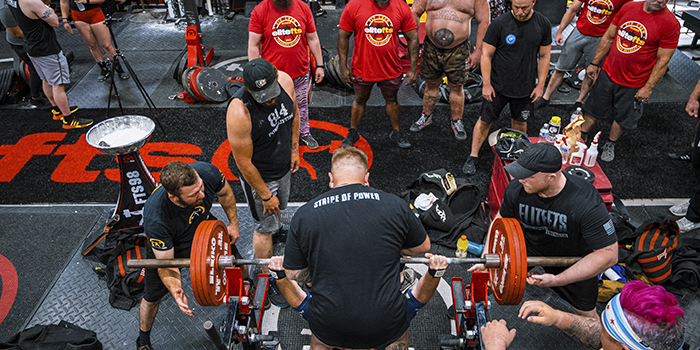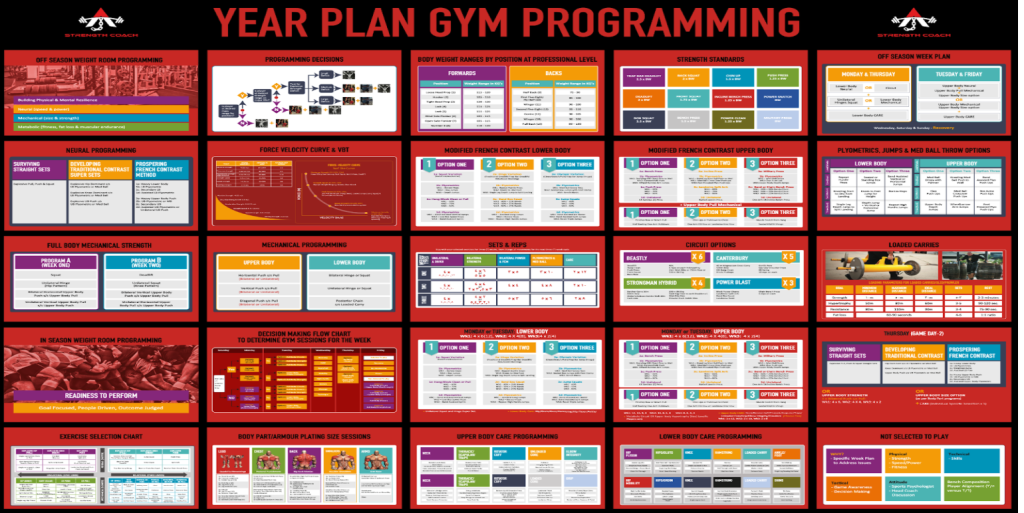
I’m often asked why I give away nearly everything I’ve done and share it with anyone who asks. There are a few reasons. The first—and for me, the most important—is something I describe in this excerpt from my autobiography:
I was beginning to take my role in the team and my physical preparation more seriously. I had just been named captain of the under-16 Warringah team and read about the legendary number 8 from the Randwick club, Alan Norley. I sent him a letter asking how he approached his role as captain. I was surprised it reached him, as I’d only addressed it to the club.
He wrote back almost immediately—an eight-page letter detailing his ideas and philosophies on coaching and training to bring out the best in people and lead them into the game. He came across as humble and honest. I asked if I could meet him after a game sometime, and as luck would have it, Randwick was playing Warringah at our home ground, Rat Park. I ran down to the field after the game and introduced myself.
He stopped and said he had a few things to do in the sheds, but'd return if I could wait. I waited about 30 minutes, and he returned—still in his playing kit. We sat in the stands for about 20 minutes, talking about captaincy. He expanded on his letter. What struck me then, and still strikes me now, is that he could’ve easily brushed me off. But he didn’t—because of the kind of man he was. He realized how much this meant to me. The lessons he taught me in that brief moment have stayed with me, helping shape two core beliefs:
A: Always select a player based on character first. Men of character will always find a way to win. You can teach skills, but character is formed long before we ever work with a player.
B: If anyone contacts you and asks for anything you might have, share it. Help bridge the gap with your experiences.
This process has been ongoing for nearly 50 years. It’s the cornerstone of my programming and coaching philosophy. It’s also how I came up with using charts to outline my programs or programming concepts. These charts became educational tools—and constant reminders on the gym wall—showing players their options. I’ve found that this dramatically improves compliance and helps players understand the “why” behind the “what.” Here’s my latest chart, detailing my current program.

The second reason I share is far less altruistic. Often, what I share reflects what I’m currently doing—or have done—in the past. Sharing sparks new ideas. It helps me evaluate where I’m going next with my programming. How can I simplify it? How can I integrate new ideas without compromising the structural integrity of what came before? What needs updating—or tossing altogether—to make space for something new I’ve read or heard about?
The third reason I share everything is a little darker, and I want to discuss it in case anyone else has had a similar experience. Honestly, it’s tough to write about:
In 2017, a shake-up occurred in the Edinburgh coaching ranks. The head coach was ousted and replaced by the assistant. I had worked well with them in the Edinburgh and Scottish national team setups. We had a game in Romania for the European Challenge Cup. The new head coach pulled me aside when we arrived at the hotel. In a quiet spot in the foyer, he told me my approach was sub-par, that I was lazy, and that things would change.
His words crushed me. They made me feel like my entire life’s work had been worthless—that I’d finally been found out. I’ve struggled with imposter syndrome for most of my career, and here was a head coach validating that internal fear. I was in shock. I decided not to apply to renew my contract if he were to remain in charge.
Back home in Christchurch, this might be the end. I threw myself into writing—not just to share ideas, but to seek validation. Writing helped me climb out of that pit of self-doubt and low self-worth.
Then I received a call from Greg Cooper, who had just been appointed head coach at Stade Français. He’d seen the teams I conditioned—Crusaders, Panasonic, and Edinburgh—and admired how we finished games. He offered me the role of heading the program in Paris. It was a lifeline. But I was still reeling from what had happened in Edinburgh. I knew I couldn’t give 100%. I told Greg I needed a year off—to write, present, and reconnect with why I do what I do.
So I turned him down. But he returned with an alternative: help him run pre-season, find a lead S&C coach, and stay on temporarily until someone was hired.
A summer in Paris—how could I say no? I agreed. I also knew who’d be perfect for the role: my friend and colleague, Tristan Sharp, who’d just been passed over for the lead role at Connacht. Greg agreed, and things began to move forward.
Once I arrived in Paris and started working with the players, I knew I was in the right place. I still had what it takes.
I often feel like that image of a duck—calm and confident above water, but with legs paddling like crazy underneath just to stay afloat.
So, review your files. Look at what you’ve got. Even if it doesn’t seem like much, it might just be the spark another coach needs for an “aha” moment. Or maybe it’ll help you see your work differently, launch into a new phase, and rekindle your passion.
I genuinely hope you’ll share your experiences—and help us grow.
Ashley Jones has worked in three professional sports for 30+ years in seven countries. In 2016, he was awarded the NSCA's Professional Coach of the Year award. He has held his CSCS since 1988 and his RSCC*E since 2016. In 2023, he received the NSCA Boyd Epley Lifetime Achievement Award.








